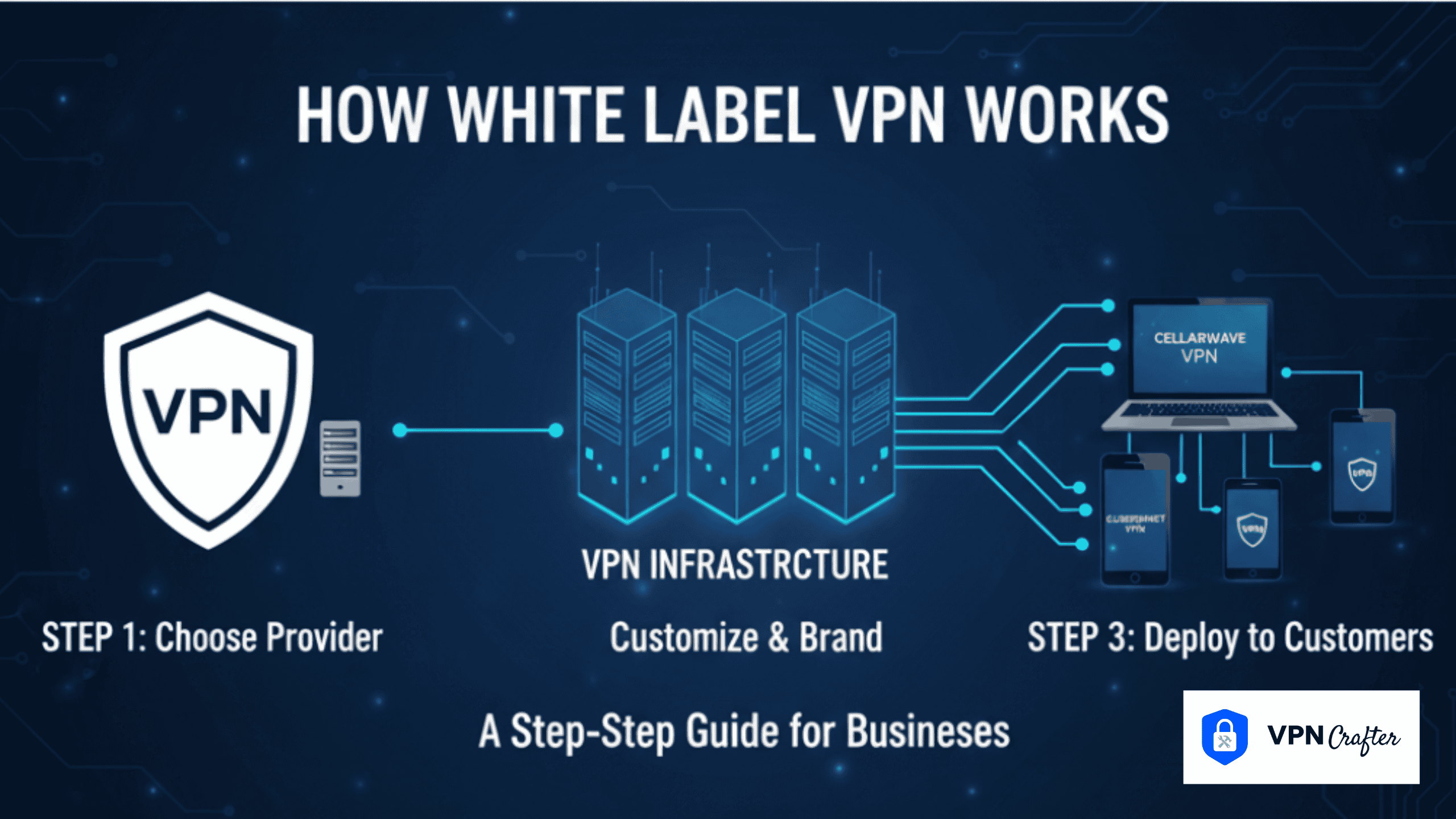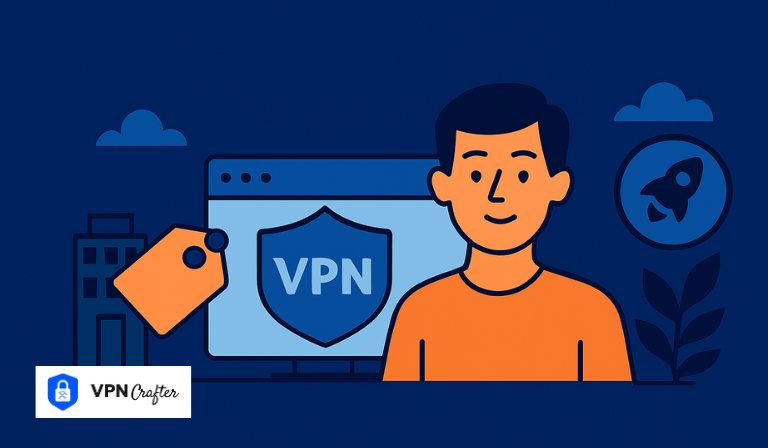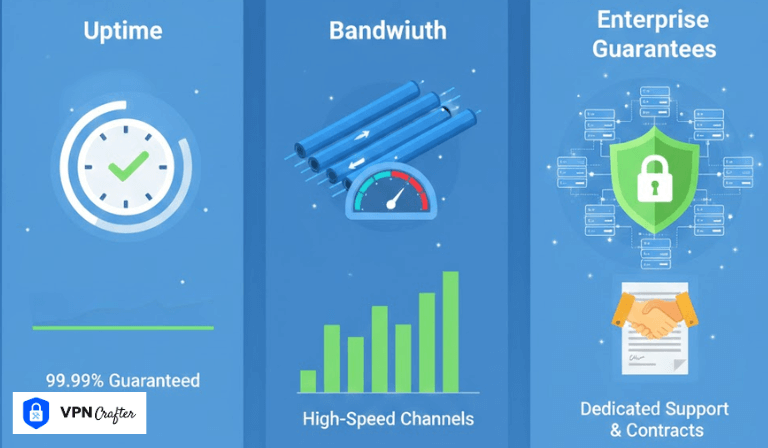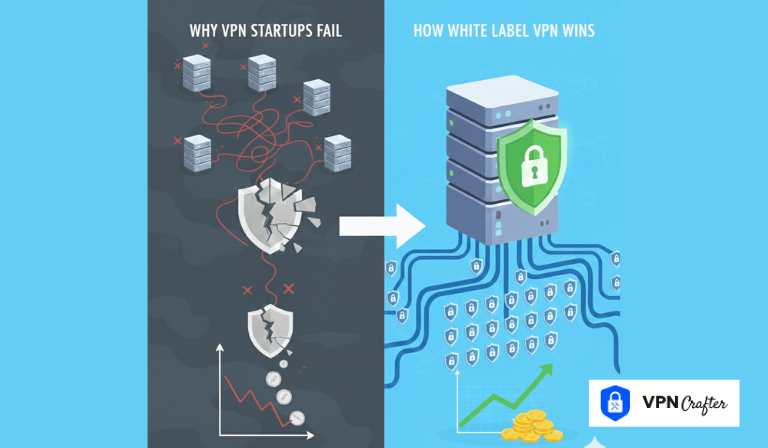In today’s digital-first world, privacy and online security are no longer optional—they’re expected. From individuals trying to secure public Wi-Fi connections to businesses protecting sensitive client data, the demand for Virtual Private Networks (VPNs) is skyrocketing. In fact, the VPN industry is projected to grow into a multi-billion-dollar market within just a few years, driven by remote work, rising cyber threats, and increased awareness of digital privacy.
For entrepreneurs and digital service providers, this growing demand opens a golden opportunity. Instead of spending years building servers, writing custom code, and managing infrastructure, many businesses are turning to white label VPN solutions. These ready-made systems allow companies to launch their own branded VPN service quickly, without the enormous upfront costs and technical complexities of building one from scratch.
This article will walk you through how white label VPN work, step by step. From setting up the infrastructure to branding, customization, and monetization, you’ll see exactly how businesses are creating secure, scalable VPN products under their own names.
What is a White Label VPN?
A White Label VPN is a turnkey solution that allows you to offer VPN services under your own brand while relying on an established provider for the technical backbone. In simple terms, the provider handles the servers, encryption protocols, and maintenance, while you focus on branding, marketing, and customer relationships.
Think of it like launching your own bottled water company. You don’t need to dig wells and build filtration plants—you partner with a supplier who handles the production. Your job is to put your brand on the bottle, market it to your audience, and manage your customer experience. A white label VPN works in a very similar way.
White Label VPN vs. Building Your Own VPN Infrastructure
| White Label VPN | Building from Scratch |
|---|---|
| Ready-made infrastructure | Requires years of development |
| Launch in weeks, not years | Huge upfront investment (servers, software, staff) |
| Focus on branding & marketing | Focus split between tech & business |
| Lower cost, scalable pricing | High ongoing maintenance costs |
| Provider handles compliance & updates | Must handle compliance, security audits |
This difference is what makes white label VPNs so attractive to businesses that want speed, scalability, and lower risk. Instead of reinventing the wheel, companies plug into proven technology and use it as their own.
Real-World Examples of White Label Solutions
- Telecom companies often bundle VPN services into their mobile data or broadband packages, but the backend is usually powered by white label providers.
- Cybersecurity startups launch branded VPNs to complement their existing services like password managers, antivirus software, or encrypted storage.
- Agencies and hosting providers offer VPN as part of their digital services portfolio, leveraging white label platforms to strengthen customer loyalty.
In short, white label VPN solutions make it possible for any business—from small agencies to global enterprises—to enter the privacy market quickly and competitively.
Why Businesses Opt for White Label VPN
The demand for VPN services has surged as individuals and businesses alike seek secure, private internet access. Building a VPN from the ground up is possible, but it requires significant investment, technical expertise, and years of infrastructure development for White Label VPN Development. That’s why many companies prefer to go with white label VPN solutions—it’s faster, leaner, and far more efficient.
Here are the main reasons businesses choose this route:
1. Saves Time and Infrastructure Costs
Constructing your own VPN infrastructure means renting or buying servers across the globe, configuring encryption protocols, and constantly maintaining uptime. This is both expensive and time-consuming. A white label VPN, on the other hand, provides ready-made infrastructure—so you skip the heavy lifting and focus on growing your brand.
2. Quick Market Entry with Proven Backend Technology
Time-to-market can make or break a product. With a white label VPN, you can launch in weeks rather than years. The backend technology is already proven, tested, and optimized. That means your business can tap into a functioning global VPN network right away and start acquiring customers without delays.
3. Branding Opportunities – Your Logo, Your Identity
The beauty of white label solutions lies in ownership of the customer experience. From the app interface to the website dashboard, you can fully integrate your logo, brand colors, and tone of voice. To your customers, it feels like a VPN created by your company—strengthening trust and brand recall.
4. Revenue and Customer Retention Potential
VPN services run on recurring subscriptions, making them ideal for predictable revenue streams. White label solutions allow you to set your own pricing, offer flexible packages, and keep customers locked in with your brand. The stronger the trust, the longer the retention—and that translates to steady growth.
How White Label VPN Works: Step-by-Step Process
So, how does it all come together? Let’s break down how white label VPN work step by step.
Step 1: Partnership with a White Label VPN Provider
The first move is selecting a trusted white label VPN provider. This partner supplies the technology backbone, including servers, apps, and protocols. A good provider will also guide you through compliance requirements, ensuring your VPN service aligns with global privacy laws.
Step 2: Infrastructure & Server Setup
Forget about building data centers or renting global servers. The provider manages a secure and distributed VPN infrastructure, complete with encryption standards like AES-256 and protocols such as OpenVPN or WireGuard. Businesses simply plug into this ready-made system, saving millions in setup costs.
Step 3: Custom Branding & UI Integration
Here’s where your identity takes center stage. The VPN apps and dashboards are tailored with your logo, brand colors, typography, and design. From the user’s perspective, it looks and feels like your own unique product, not a third-party service.
Step 4: Feature Customization
White label VPNs aren’t one-size-fits-all. Providers allow you to select features like:
- Kill switch for added security
- Multi-device support across platforms
- Split tunneling for traffic flexibility
- Dedicated IPs for business use cases
You decide which features resonate with your target audience, creating a product that stands out.
Step 5: Payment Gateway & Pricing Model
Your white label VPN integrates seamlessly with subscription and billing systems. This enables monthly, quarterly, or annual plans—whichever suits your business strategy. You maintain control over pricing, discounts, and offers, and the revenue flows directly to your business.
Step 6: Testing & Launch
Before the big debut, providers run QA checks to ensure apps work smoothly on Windows, macOS, iOS, Android, and even Linux. Once everything is validated, you can publish your apps on the App Store, Google Play Store, or distribute directly to your customers.
Step 7: Ongoing Maintenance & Support
Your job doesn’t end with the launch—but thankfully, most technical headaches don’t fall on you either. The provider handles software updates, bug fixes, server expansions, and security patches. This lets your team focus on marketing, customer support, and scaling your business while relying on a stable backend.
👉 In short, a white label VPN lets businesses step into a booming market with minimal technical risk and maximum branding potential. By leveraging existing infrastructure and focusing on customer experience, companies can build a sustainable, profitable product in record time.
Benefits of Using White Label VPN
When exploring how white label VPN work, it becomes clear that businesses gain a competitive edge without reinventing the wheel. The advantages go beyond technology—they create real business impact.
Faster Go-to-Market Strategy
Building a VPN from scratch can take years, not to mention millions in infrastructure investment. With a white label VPN, you leverage an existing, secure backbone. That means your branded VPN can launch in a matter of weeks, giving you a first-mover advantage in markets where demand is surging.
Scalability with Minimal Infrastructure Investment
One of the biggest barriers to entering the VPN industry is server infrastructure. White label providers remove that barrier. As your user base grows, the infrastructure scales seamlessly without you needing to set up or maintain global servers. You can focus entirely on marketing, customer acquisition, and retention, while the provider ensures performance and uptime.
Data Security and Compliance Handled by Experts
Privacy is the cornerstone of the VPN industry. A credible white label partner ensures industry-standard encryption, strict no-log policies, and compliance with GDPR or other regional privacy frameworks. Instead of worrying about the complexities of compliance, you can assure customers that their data is handled with enterprise-grade protection.
Monetization and Recurring Revenue
White label VPN solutions open up predictable, recurring income streams. With subscription-based models, businesses can set their own pricing strategies, offer different tiers, and increase lifetime customer value. This makes VPN not just a tech product, but a long-term revenue engine.
6. Common Misconceptions About White Label VPN
Like many digital solutions, white label VPNs are sometimes misunderstood. Clearing these misconceptions is essential for decision-makers.
“It’s Just a Copy-Paste Service”
This is far from true. While the underlying infrastructure is shared, the branding, features, and user experience are fully customizable. You control the look, feel, and even the pricing model. Essentially, it’s your VPN—built on a trusted backbone.
“Security is Compromised”
Some believe that outsourcing to a provider weakens security. In reality, reputable providers deliver enterprise-grade encryption protocols, kill switches, DNS leak protection, and no-log policies. This means your brand benefits from proven, battle-tested security that would be expensive to build alone.
“Too Costly”
Compared to developing and maintaining a VPN network from scratch, white label solutions are remarkably cost-effective. You save on server investments, staffing, and R&D. What you pay is a fraction of what you’d otherwise spend—and the ROI is faster because you hit the market sooner.
Key Considerations Before Choosing a White Label VPN Provider
Understanding how white label VPN works is only half the battle; choosing the right partner determines your long-term success. Here’s what to evaluate:
Provider’s Reputation & Trustworthiness
Look for providers with a proven track record, transparent policies, and testimonials from existing partners. Reputation matters in an industry built on trust.
Server Network Size and Locations
The more global server coverage, the better your user experience will be. A diverse network ensures faster speeds and the ability to unblock geo-restricted content.
Compliance with Privacy Laws
Check if the provider enforces a no-log policy and complies with regulations such as GDPR. Your customers expect absolute privacy, and you must deliver it.
Technical Support and Future Updates
VPN technology evolves rapidly. Ensure your provider offers 24/7 support, regular app updates, and security patches. This guarantees that your branded VPN remains competitive and secure.
Final Thoughts
White label VPNs combine speed, security, and scalability, making them one of the smartest digital products to add to your portfolio. By now, you’ve seen how white label VPN works—from setup to customization, and from monetization to long-term support.
For entrepreneurs and established digital service providers alike, this model provides the perfect balance: you own the brand, while experts handle the technology.
As demand for privacy tools continues to rise globally, those who prepare today will lead tomorrow. If you’re serious about building a VPN business, take the next step—explore trusted white label VPN providers and position your brand at the forefront of the privacy-first economy.





